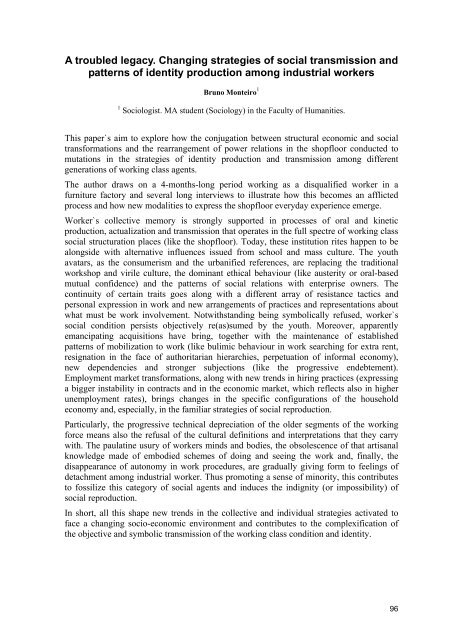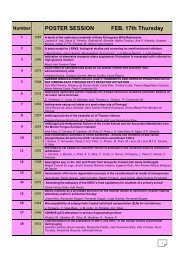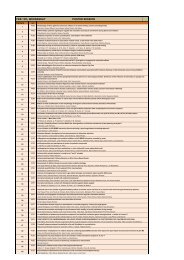IJUP08 - Universidade do Porto
IJUP08 - Universidade do Porto
IJUP08 - Universidade do Porto
- TAGS
- universidade
- porto
- ijup.up.pt
You also want an ePaper? Increase the reach of your titles
YUMPU automatically turns print PDFs into web optimized ePapers that Google loves.
A troubled legacy. Changing strategies of social transmission and<br />
patterns of identity production among industrial workers<br />
Bruno Monteiro 1<br />
1 Sociologist. MA student (Sociology) in the Faculty of Humanities.<br />
This paper`s aim to explore how the conjugation between structural economic and social<br />
transformations and the rearrangement of power relations in the shopfloor conducted to<br />
mutations in the strategies of identity production and transmission among different<br />
generations of working class agents.<br />
The author draws on a 4-months-long period working as a disqualified worker in a<br />
furniture factory and several long interviews to illustrate how this becomes an afflicted<br />
process and how new modalities to express the shopfloor everyday experience emerge.<br />
Worker`s collective memory is strongly supported in processes of oral and kinetic<br />
production, actualization and transmission that operates in the full spectre of working class<br />
social structuration places (like the shopfloor). Today, these institution rites happen to be<br />
alongside with alternative influences issued from school and mass culture. The youth<br />
avatars, as the consumerism and the urbanified references, are replacing the traditional<br />
workshop and virile culture, the <strong>do</strong>minant ethical behaviour (like austerity or oral-based<br />
mutual confidence) and the patterns of social relations with enterprise owners. The<br />
continuity of certain traits goes along with a different array of resistance tactics and<br />
personal expression in work and new arrangements of practices and representations about<br />
what must be work involvement. Notwithstanding being symbolically refused, worker`s<br />
social condition persists objectively re(as)sumed by the youth. Moreover, apparently<br />
emancipating acquisitions have bring, together with the maintenance of established<br />
patterns of mobilization to work (like bulimic behaviour in work searching for extra rent,<br />
resignation in the face of authoritarian hierarchies, perpetuation of informal economy),<br />
new dependencies and stronger subjections (like the progressive endebtement).<br />
Employment market transformations, along with new trends in hiring practices (expressing<br />
a bigger instability in contracts and in the economic market, which reflects also in higher<br />
unemployment rates), brings changes in the specific configurations of the household<br />
economy and, especially, in the familiar strategies of social reproduction.<br />
Particularly, the progressive technical depreciation of the older segments of the working<br />
force means also the refusal of the cultural definitions and interpretations that they carry<br />
with. The paulatine usury of workers minds and bodies, the obsolescence of that artisanal<br />
knowledge made of embodied schemes of <strong>do</strong>ing and seeing the work and, finally, the<br />
disappearance of autonomy in work procedures, are gradually giving form to feelings of<br />
detachment among industrial worker. Thus promoting a sense of minority, this contributes<br />
to fossilize this category of social agents and induces the indignity (or impossibility) of<br />
social reproduction.<br />
In short, all this shape new trends in the collective and individual strategies activated to<br />
face a changing socio-economic environment and contributes to the complexification of<br />
the objective and symbolic transmission of the working class condition and identity.<br />
96










